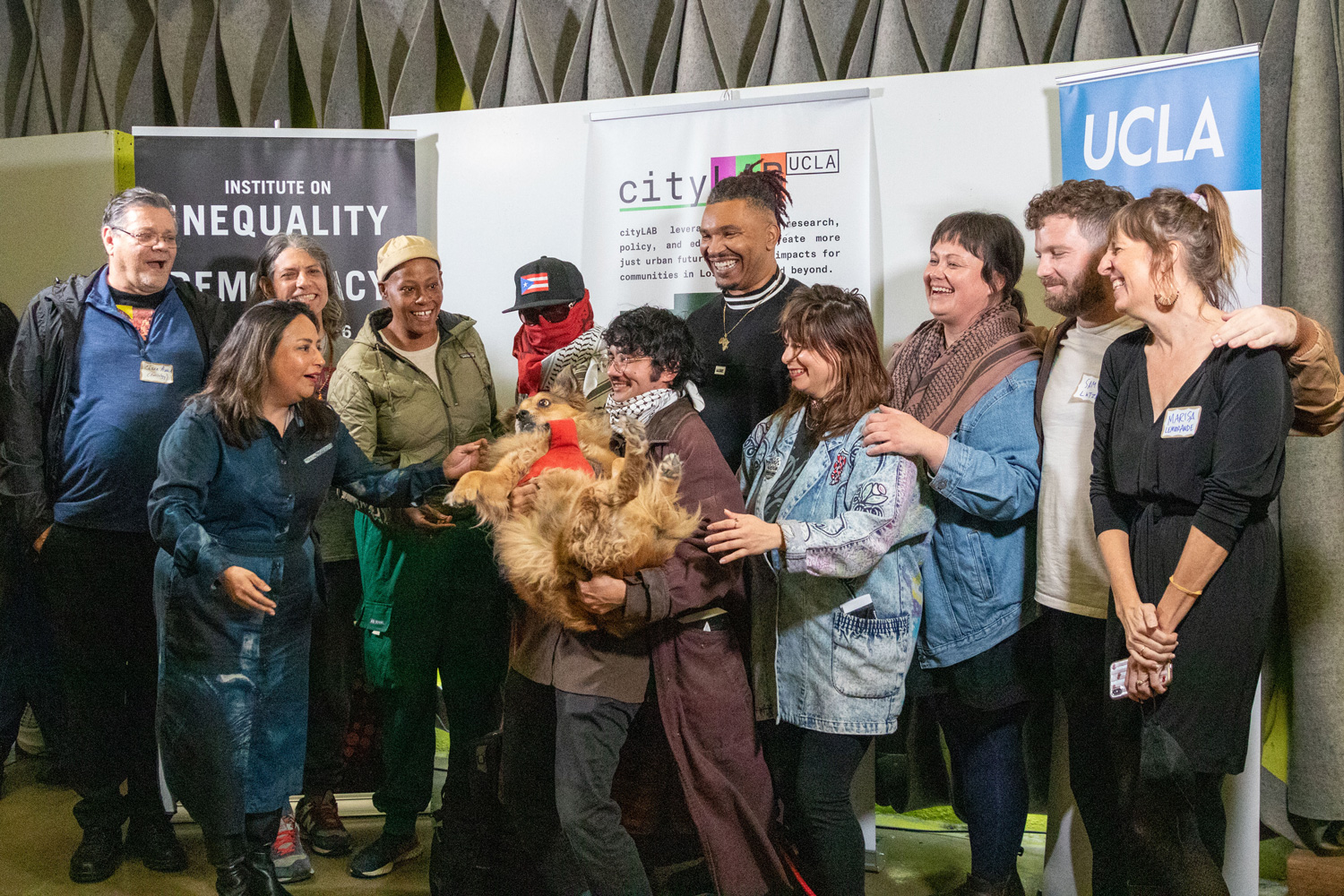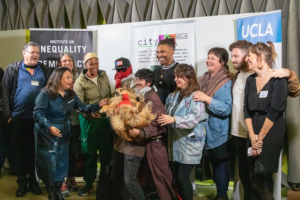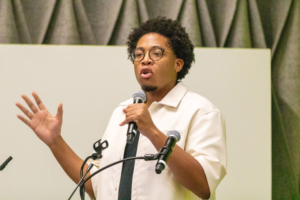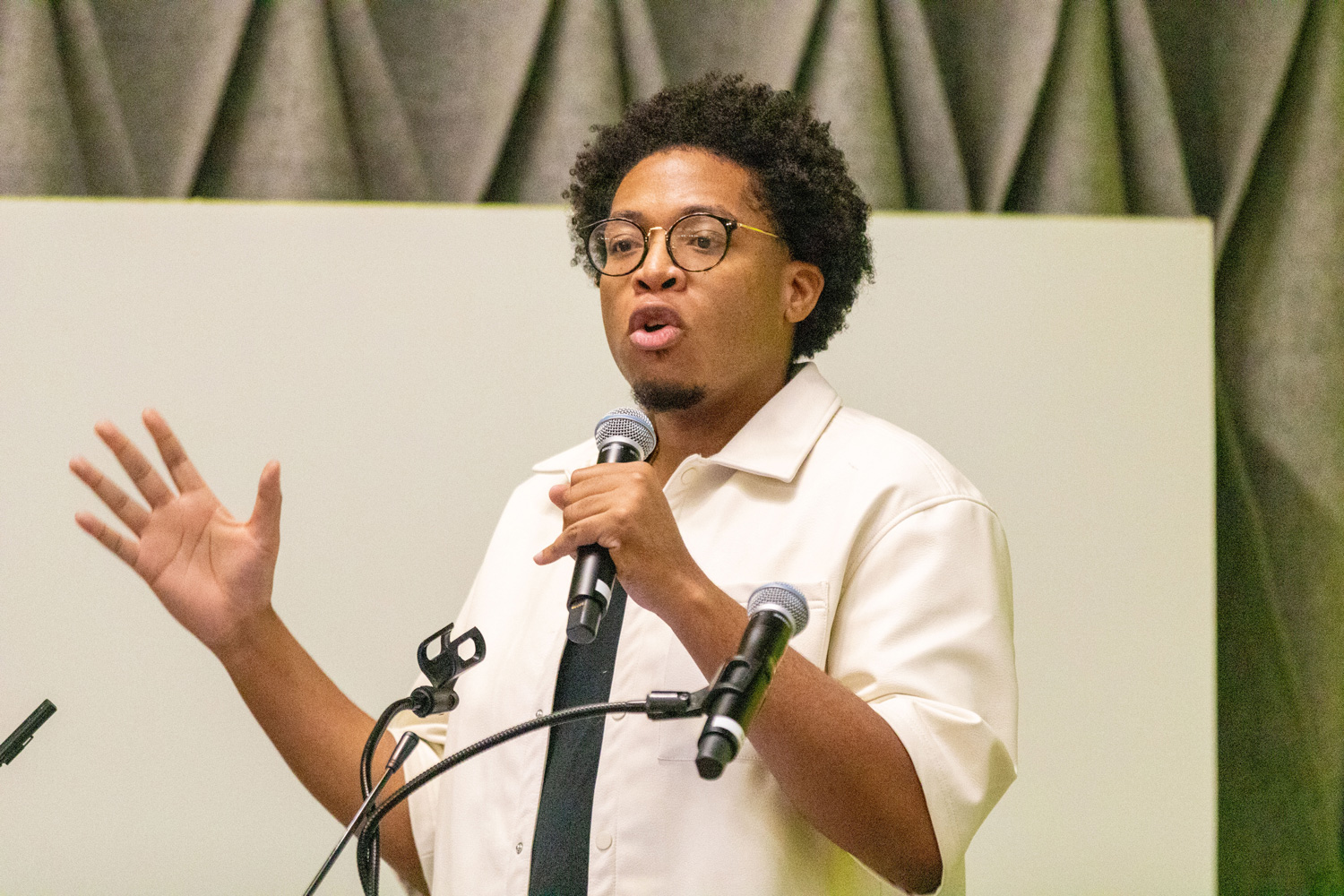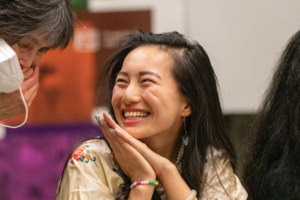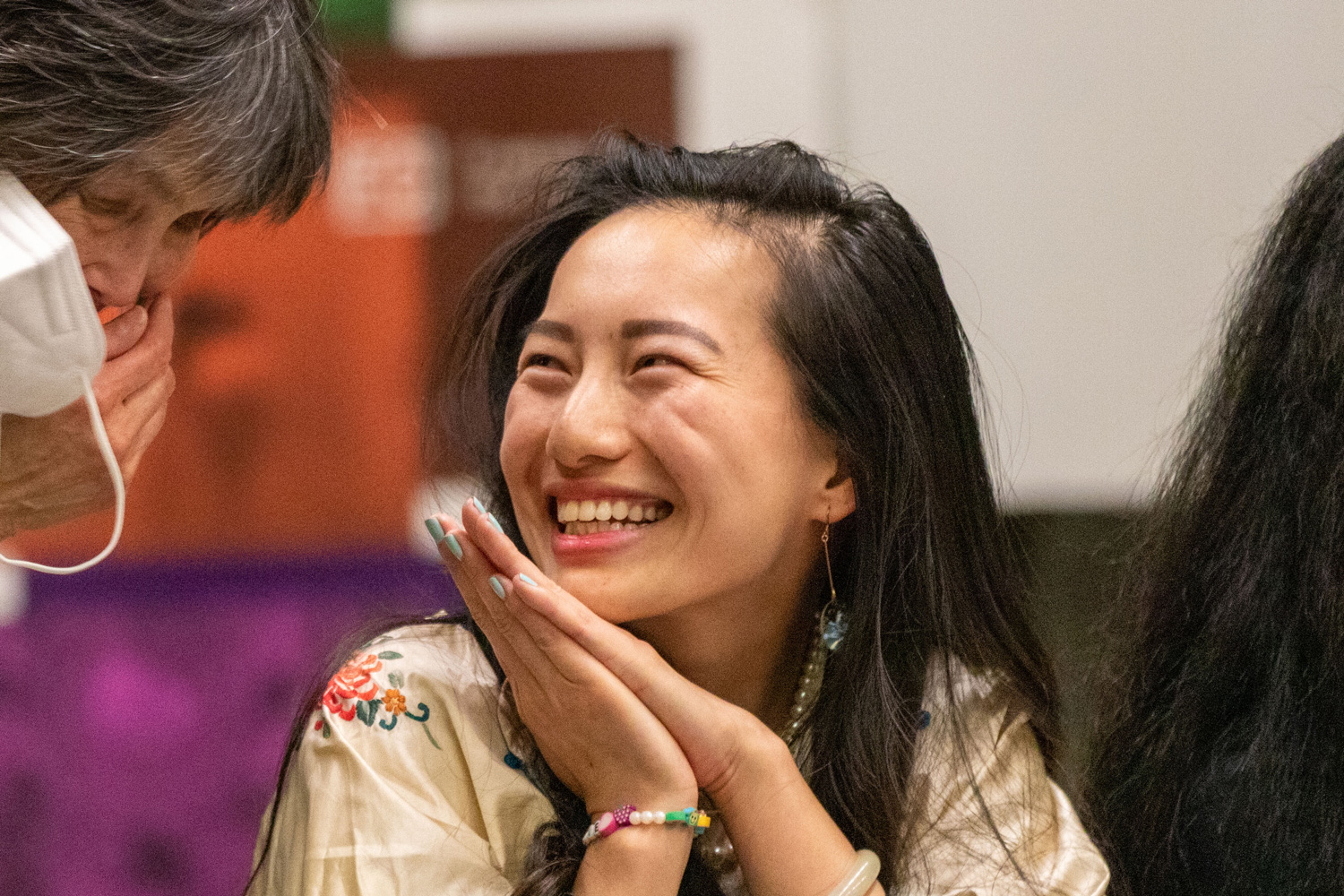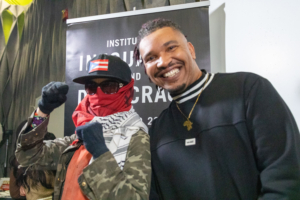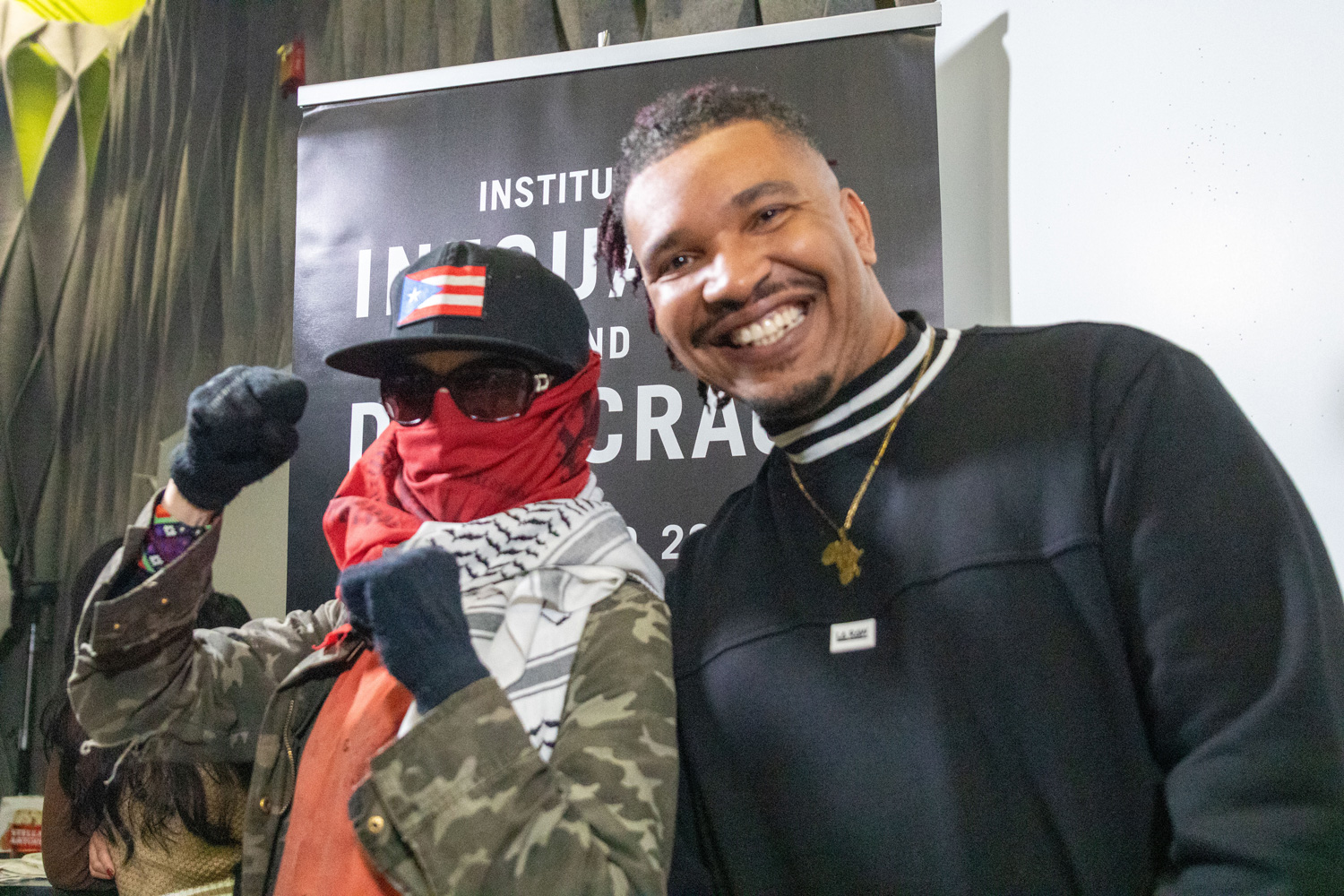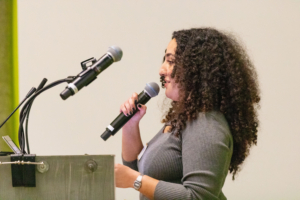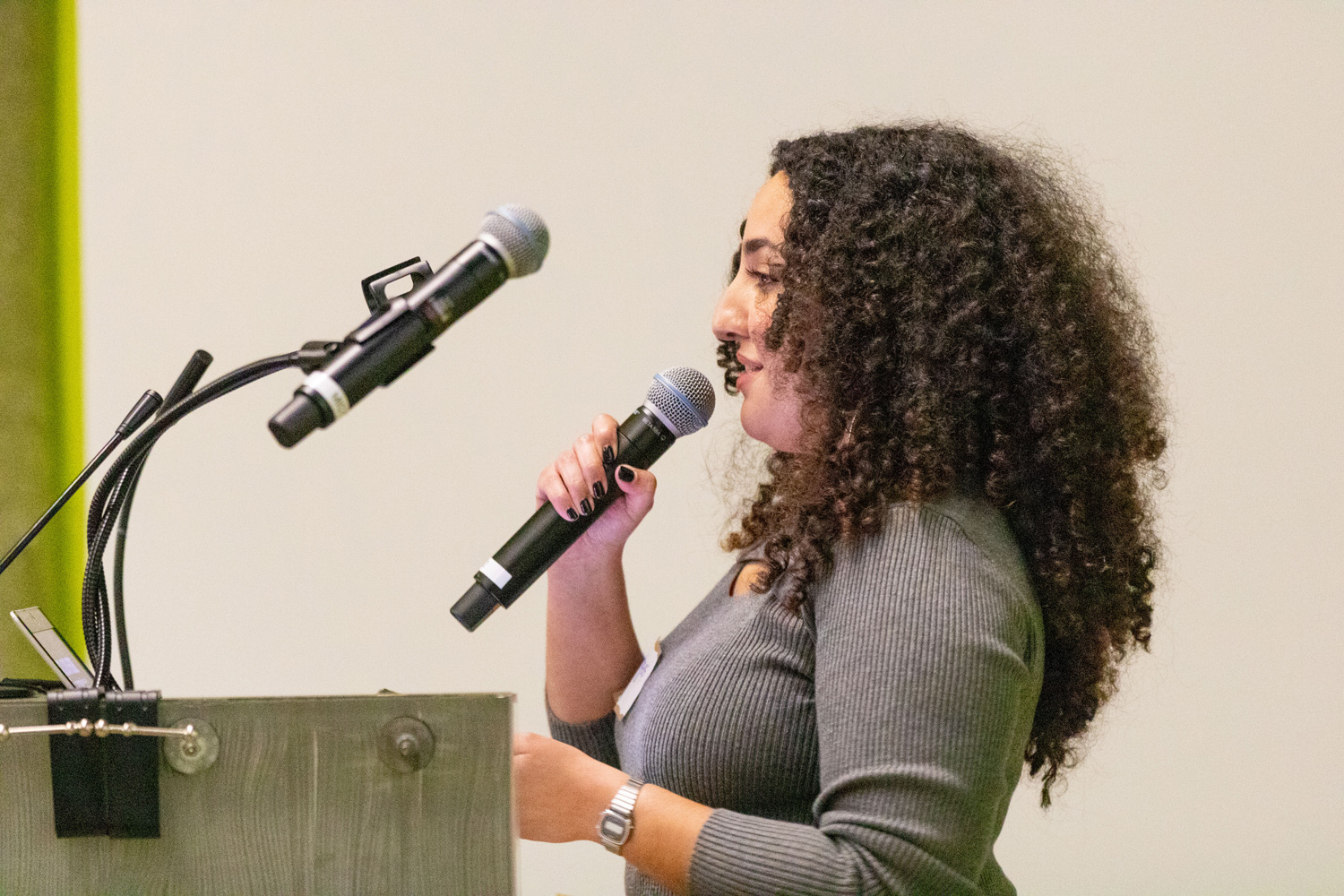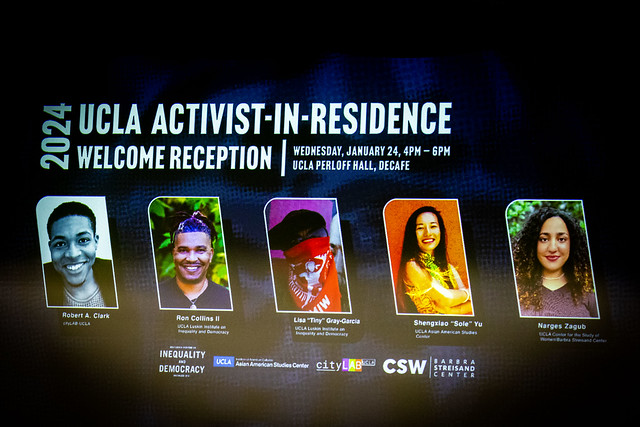UCLA Hosts Its Largest Activist-in-Residence Cohort Five advocates for social change will be on campus through May to ‘turn the university inside out’
By Les Dunseith
The UCLA Activist-in-Residence program welcomed five more changemakers — the largest cohort in the program’s seven-year history — to campus with a reception Jan. 24 at DeCafe in Perloff Hall.
The UCLA Luskin Institute on Inequality and Democracy, which has selected at least one activist since 2017, is hosting community organizer Ron Collins II and revolutionary writer Lisa “Tiny” Gray-Garcia during this academic year.
The UCLA Asian American Studies Center, also a longtime participant in the program, is hosting writer and social justice educator Shengxiao “Sole” Yu.
In its second year with the Activist-in-Residence program, cityLAB-UCLA is hosting Robert A. Clarke, a designer and educator practicing at the intersection of culture, identity and architecture.
A new addition to the program for 2024 is the UCLA Center for the Study of Women|Barbra Streisand Center, which is hosting Narges Zagub B.A. Anthropology ’20, a movement worker and facilitator.
Opening remarks for the reception were provided by UCLA Luskin Professor Ananya Roy, who created the residency program soon after arriving at UCLA as the director of the UCLA Luskin Institute on Inequality and Democracy.
She conceptualized the program as a sabbatical for participants, allowing them time and space to reflect, envision new projects, and connect with UCLA faculty, students and staff.
“More than ever, I am reminded, in these difficult times, that the residency is our effort to turn the university inside out,” Roy told the crowd. “At the Institute, we organize knowledge within, against and beyond the university. The Activist-in-Residence program brings to the university the movement scholars and public intellectuals who are teachers and guides for this praxis.”
Roy and other representatives of the four UCLA sponsors then introduced the individual activists, each of whom spoke briefly about their previous experiences and their plans for the next few months.
The first activist to speak this year was Gray-Garcia, who is a formerly unhoused and incarcerated poverty scholar who prefers to keep their face covered in public. Their rousing remarks were presented in the form of spoken word poetry.
The next activist to speak was Collins, a native of South Los Angeles who is has experience as a social justice strategist and movement builder. Collins’ work advances racial and social justice with a particular focus on Black, LGBTQ and environmental justice issues.
Yu is the creator of Nectar, an online space where she provides political education and healing justice workshops. She spoke of her efforts to combat misinformation and disinformation, particularly when it targets the Chinese-speaking community such as. harmful narratives attacking affirmative action and Black-on-Asian crime tropes during the COVID pandemic.
In his work with cityLAB-UCLA, Clarke said he aims to further efforts to canonize Black aesthetics, helping to authenticate it as a lens through which to practice architecture. Clarke is co-founder of a design practice that explores ways to unearth new aesthetics specific to African American culture, experience and identity.
Narges is a UCLA alumna who gained experience in student and community organizing as part of her undergraduate activities. Their background as a Muslim, queer person from an immigrant family from Libya has helped shape their understanding of community.
Find out more about this year’s activists and their plans.
View photos from the reception on Flickr.
